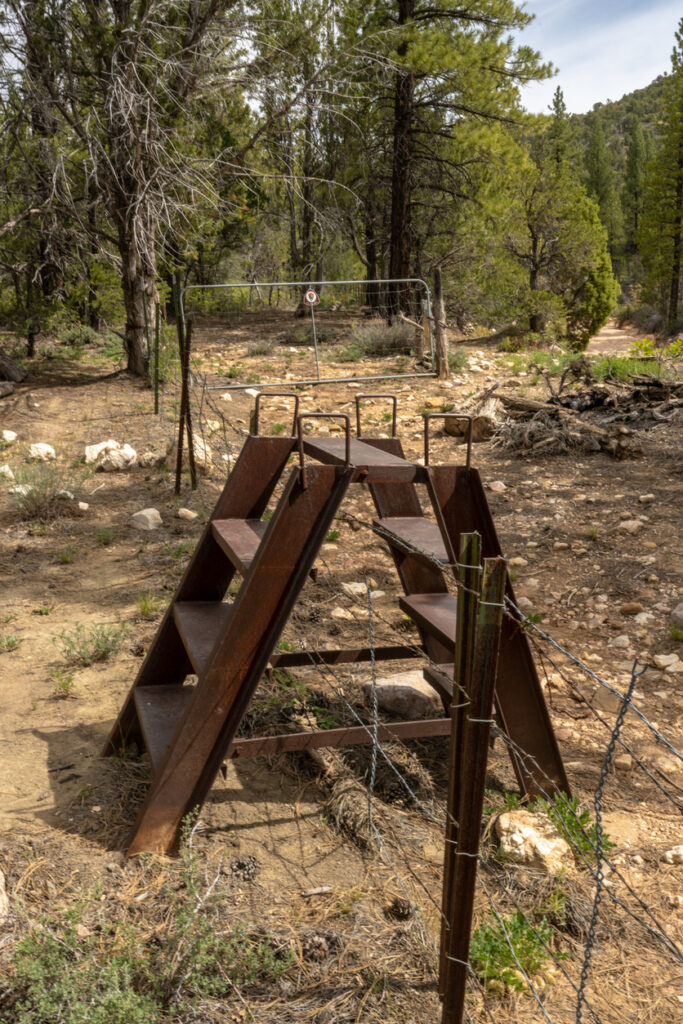Corner Crossing Case

Corner Crossing Case Stalled at Appellate Court
Iron Bar Holdingss v. Cape, et al., what has become commonly referred to as the “Corner Crossing Case”, has stalled in the Tenth Circuit Appellate Court since May of this year. The Corner Crossing Case is primed to set precedent on public land use in the West and settle a decades-long dispute between competing public land uses.
Background

The Corner Crossing Case arose from a Federal District Court for the District of Wyoming. The case stemmed from several incidents in 2020 and 2021 involving four Missouri hunters who were pursuing deer and elk in southeast Wyoming: Brad Cape, Zach Smith, Phillip Yeomans, and John Slowensky. The Bureau of Land Management (“BLM”) parcels they were hunting on were checkerboarded with private land belonging to Iron Bar Holdings, the owner of a Wyoming based ranching operation. Due to prior disagreements on whether hunters could “corner cross”, traversing from one BLM parcel to another via the touching corners, Iron Bar Holdings posted the corners of its private land, making it impossible to “corner cross” the adjacent BLM parcels.
As a result, instead of walking across the private land to reach the public land, the hunters used a ladder, with its bases placed on each BLM parcel to climb from one public block to another at the corners where they meet.
Iron Bar Holdings pursued criminal charges against the hunters, claiming trespass into the private property’s air-space. The hunters counter-argued Iron Bar Holdings violated the Unlawful Inclosures Act, a federal law that prohibits anyone from restricting access to public land. The Wyoming state court found the hunters not guilty of criminal trespass. Iron Bar Holdings then sued them in federal civil court claiming up to $7.75 million in damages based on a possible 10-25% devaluation of its property.
The hunters are represented by Ryan Semerad, who provided an update on the case at the Western Agricultural and Environmental Law Conference in Reno, Nevada in June of 2024. Schroder Law attorneys Therese Stix and Caitlin Skulan were in attendance.
District and Appellate Litigation on Corner Crossing Case
The District Court Judge ruled that public land users who corner-cross are immune from civil liability as long as the crossers do not touch the surface of private land or damage private property. The 32-page ruling was strongly in favor of the hunters. The ruling relied heavily on a 1914 case Mackay v. Uinta Development Co. wherein a federal court ruled that a sheep farmer could move his herd across private land to access public parcels in southern Wyoming. That court held that individuals “possess a reasonable way of passage over the unenclosed track of land without being guilty of trespass.” In answer to Iron Bar Holdings air-space argument, the District Judge cited a 1974 case from the Tenth Circuit Court of Appeals holding that a trespass into private property airspace required proof of damages to the property or proof of interference in the use of the private property.
The ruling was a “win for the common outdoors person” stated Brad Cape; but was it a loss for western ranchers? Iron Bar Holdings certainly thought so and appealed the District Court decision to the Tenth Circuit Court of Appeals.
The Tenth Circuit Court of Appeals heard oral argument on the appeal on May 14, 2024. However, the Corner Crossing Case has stalled at the Appellate Court, that has yet to issue a decision on the appeal.
The Court’s decision will have precedential effects across the Tenth Circuit, including Wyoming, Colorado, Utah, New Mexico, Kansas, and Oklahoma and could impact public access to 8.3 million acres in the West. Many of these acres are used for hunting and other recreation as well as by livestock grazers under Bureau of Land Management grazing permits and licenses. These diversified interests were well represented in the Tenth Circuit with the submission of numerous Amicus briefs both in support of and against corner crossing.
Corner Crossing Case: Appeals to the Supreme Court
As the Tenth Circuit Court of appeals has yet to issue a ruling on Iron Bar Holdings v. Cape, et al., the outcome of the case is still uncertain. However, Semerad opined in June that one of the parties will likely petition the Supreme Court for certiorari. Given the dramatic effect a Supreme Court opinion will have on public land in the West, this office believes there is a high probability the Supreme Court will grant certiorari and provide clarity on this long standing legal gray area.
The United States Supreme Court review of a case is not a matter of right, but of discretion. The primary purpose of the Supreme Court is to decide cases presenting issues of importance beyond the particular facts and parties involved and to set precedent on those issues. Pursuant to that goal, the Supreme Court grants and hears argument in only about 1% of the cases that are filed each term with the vast majority being denied for review.
However, for the Supreme Court to consider a case, a party must file a Petition for Writ of Certiorari (“petition for writ”). If a party does not file petition for writ, the Supreme Court will not consider reviewing the case. A petition for writ is due within 90 days from the date of the entry of the final judgement in the United States Court of Appeals the case was presented in or within 90 days from the denial of a timely filed petition for rehearing in that court. Supreme Court Rule 13.1.
Stay tuned!